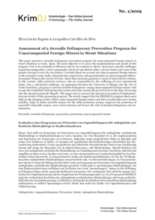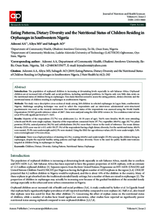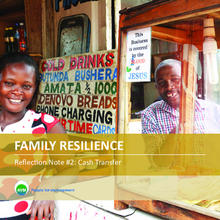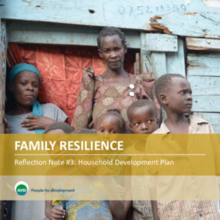Displaying 6711 - 6720 of 14348
This paper presents a juvenile delinquency prevention program for unaccompanied foreign minors in street situations in Ceuta, Spain. The main objective is to assess the implementation and results of this program.
This self-review helps organizational and program leaders evaluate, learn, and report on their organization's overall health, open to any organization working with vulnerable children in international contexts.
This study aimed to assess the eating patterns, dietary diversity and the nutritional status of children residing in orphanages in southwestern Nigeria.
The purpose of the roadmap is to document and communicate the vision and strategy towards establishing, operating and developing the Barnahus model in a simple and accessible format.
This factsheet reviews best practices for conducting a digital interview recording (DIR) with children who have experienced or witnessed violence.
The purpose of this study was to gain insights into the perspectives of child welfare alumni related to the educational experiences that facilitated or presented obstacles to academic and social-emotional resilience and well-being and to what extent.
It is now widely accepted that visiting or volunteering in orphanages is harmful to children. The purpose of this resource is to bring together in one place some the best resources about this issue in order to assist travel and volunteering organisations.
This Reflection Note is intended as a means for AVSI staff and implementing partners on the FARE project to capture emerging learning as relates to the theory of change elaborated during project design.
This Reflection Note is intended as a means for AVSI staff and implementing partners on the FARE project to capture emerging learning as relates to the theory of change elaborated during project design. Particularly, the Reflection Note seeks to answer how necessary and effective cash transfers are as a component of the economic strengthening pathway, hypothesized as crucial for the project goals of building family resilience as a means of preventing child-family separation or ensuring successful reintegration of children into family care.
This Reflection Note from the Family Resilience (FARE) project asked how, in practice, Household Development Plans were used, and what was their value in improving the relationship environment and capacities of families to reintegrate previously separated children and youth back at home and to prevent separation.








